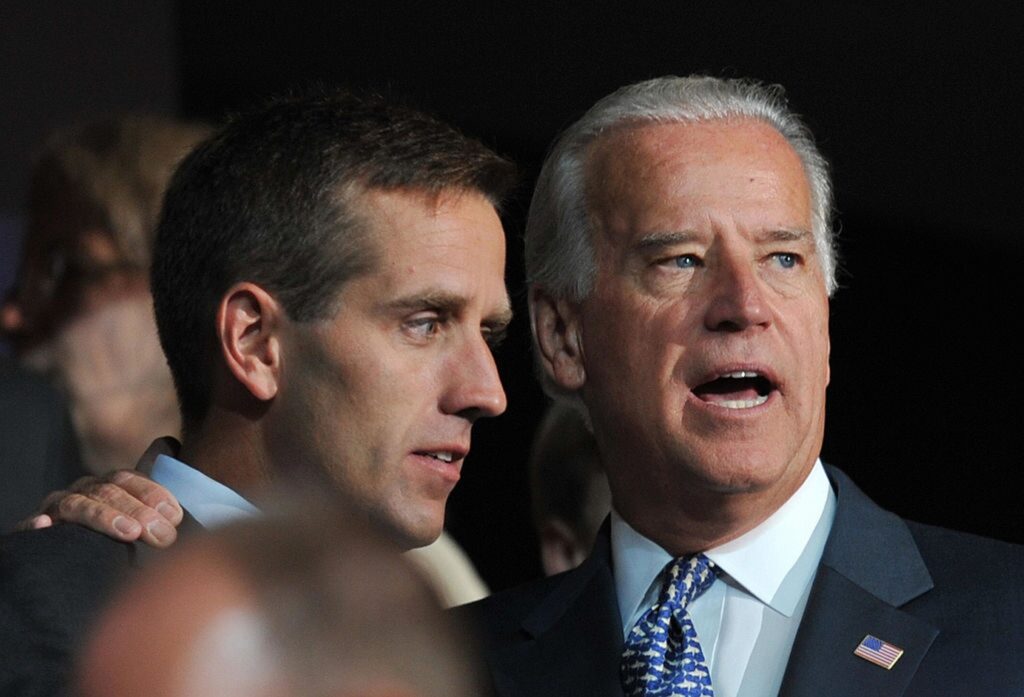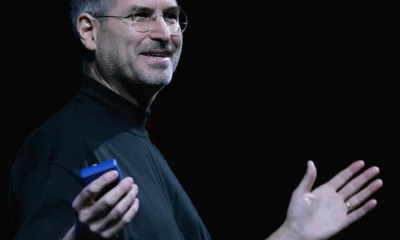Blog
Joe Biden Diagnosed with Aggressive Prostate Cancer: What It Means
In a moment that has resonated across the political and medical landscapes, former U.S. President Joe Biden revealed that he has been diagnosed with an aggressive form of prostate cancer.
The news, which broke on May 18, 2025, has prompted an outpouring of support from across the political spectrum, reignited conversations about men’s health, and underscored the importance of early detection and cutting-edge treatment options. But beyond the headlines lies a complex and deeply human story—a narrative of resilience, medical science, and the enduring fight against one of the most common cancers affecting men worldwide.

A Life in the Spotlight—and Now a New Health Battle
Joe Biden, who served as the 46th President of the United States from 2021 to 2025, has long been in the public eye. At 82, he remains one of the most recognized political figures in the country. His tenure in politics has been defined by moments of triumph and tragedy—from championing bipartisan legislation to enduring the devastating loss of his son, Beau Biden, to brain cancer in 2015.
This latest health challenge is not Biden’s first encounter with cancer. Over the years, he has dealt with multiple basal cell and squamous cell skin cancers—non-melanoma forms that are generally treatable—and, in 2023, underwent the removal of a cancerous lesion from his chest. In 2021, a polyp was also removed from his colon, a precautionary measure after it was found to be precancerous.
Yet his most recent diagnosis—a high-grade, Gleason score 9 prostate cancer with metastasis to the bone—marks a new and serious chapter in his health journey. While prostate cancer is common, the aggressiveness of Biden’s case has raised questions about treatment options, prognosis, and the implications of such a diagnosis at his age.
Understanding Prostate Cancer: What Biden’s Diagnosis Means
Prostate cancer is the second most common cancer among men in the United States, trailing only lung cancer in terms of cancer-related deaths. According to the American Cancer Society, about one in eight men will be diagnosed with prostate cancer during their lifetime, and approximately one in 44 will die from it. Early detection often leads to favorable outcomes; however, aggressive forms like Biden’s present unique challenges.
A key indicator of prostate cancer’s severity is the Gleason score, which ranges from 6 to 10. A score of 9 places Biden’s cancer in the highest risk category, indicating that the cancer cells are highly abnormal and likely to grow and spread rapidly. The fact that the disease has already metastasized to his bones means it is considered stage 4—an advanced stage that significantly affects treatment options and prognosis.
Symptoms and Detection: Biden’s Journey to Diagnosis
According to a statement from Biden’s office, the diagnosis followed the detection of a prostate nodule after Biden reported increasing urinary symptoms—a common sign of prostate issues that can range from benign prostatic hyperplasia (BPH) to cancer. These symptoms can include frequent urination, difficulty starting urination, weak urine flow, and even blood in the urine.
Biden’s diagnosis came after a biopsy, which revealed the high-grade cancer. Imaging tests, such as bone scans and possibly PET scans, confirmed the spread of the disease to the bones—a serious but not uncommon progression for advanced prostate cancer.
Treatment Strategies for Aggressive Prostate Cancer
Despite the seriousness of the diagnosis, Biden’s medical team expressed cautious optimism. According to their statement, the cancer is hormone-sensitive, meaning it responds to treatments that lower or block the male hormones (androgens) that fuel prostate cancer growth. Androgen deprivation therapy (ADT) remains the backbone of treatment in such cases, often involving medications like leuprolide or goserelin to suppress testosterone production.
In recent years, newer drugs like abiraterone and enzalutamide have been added to the arsenal, offering additional suppression of androgen pathways and improving survival outcomes in men with metastatic hormone-sensitive prostate cancer. For patients like Biden, combining ADT with these newer agents has been shown to extend life expectancy and improve quality of life.
Radiotherapy to bone metastases can also help control pain and prevent complications like fractures. Chemotherapy may be considered in cases where the cancer progresses despite hormonal therapy, but its side effects can be challenging, especially for older patients.
Prognosis: What Lies Ahead for Biden
Prognosis in prostate cancer varies widely. While localized prostate cancer has a near 100% five-year survival rate, stage 4 prostate cancer drops to about 34%. However, even within stage 4, there is nuance: hormone-sensitive cancers often respond well to initial therapy, sometimes leading to years of disease control. Hormone resistance—where the cancer learns to grow despite low testosterone levels—remains a major hurdle and is typically the point where prognosis worsens.
Biden’s age—82—adds complexity to the prognosis. Older patients may have other health issues that complicate treatment, but many can still benefit from therapies that extend life and maintain function.
Family and Personal Resilience

Biden’s announcement was accompanied by a photo posted on social media, showing him with his wife, Jill, and their family cat—a small but poignant reminder of the personal side of this journey. The caption read: “Cancer touches us all. Like so many of you, Jill and I have learned that we are strongest in the broken places. Thank you for lifting us with love and support.”
The image and words reflect Biden’s longstanding approach to adversity: a combination of openness, resilience, and reliance on family and community. His experiences with Beau’s illness and death have given him a personal connection to the struggles faced by cancer patients and their families.
Political and Public Reactions
The announcement of Biden’s diagnosis prompted swift responses from across the political spectrum. Former President Donald Trump posted on his Truth Social account, extending well wishes to Biden and his family and hoping for a “fast and successful recovery.” The gesture, though brief, was notable given the political rivalry between the two figures.
Other political leaders, advocacy groups, and public figures also shared messages of support, emphasizing the importance of solidarity in the face of serious illness.
The Broader Fight Against Prostate Cancer
Biden’s diagnosis has highlighted the broader battle against prostate cancer—a fight that continues to evolve with scientific research and medical advances. The development of personalized medicine, including genetic profiling and biomarker-driven treatments, is transforming the way doctors approach this disease.
For instance, some patients with BRCA gene mutations may benefit from PARP inhibitors—a class of drugs initially developed for breast and ovarian cancers but now showing promise in prostate cancer as well.
Immunotherapy, which harnesses the power of the immune system to fight cancer, is also under investigation for prostate cancer, although it has not yet reached the level of success seen in other cancers like melanoma and lung cancer.
The Importance of Awareness and Early Detection
Biden’s case also underscores the critical importance of regular screening, especially for men over 50. Prostate-specific antigen (PSA) testing remains a valuable tool, though its use has been debated due to concerns about overdiagnosis. Nonetheless, PSA testing can detect cancers before they become symptomatic, potentially catching them at a more treatable stage.
For high-risk groups, such as those with a family history of prostate cancer or African American men, who have higher rates of aggressive disease, discussions with a healthcare provider about the benefits and risks of screening are essential.
Navigating Life with Cancer in the Public Eye
Living with a serious illness while under the scrutiny of the public eye presents unique challenges. For Biden, this means balancing his health with the demands of his public life and the expectations that come with being a former president. It also means navigating treatment decisions that could impact his quality of life, all while serving as a role model for others facing similar battles.
A Call to Action
Biden’s announcement serves as a reminder of the universality of cancer—no one is immune, regardless of status or title. It highlights the need for continued investment in cancer research, expanded access to screening and treatment, and support for patients and families navigating the complexities of this disease.
Conclusion: Hope Amidst Uncertainty
Joe Biden’s aggressive prostate cancer diagnosis is a stark reminder of the challenges posed by this disease, particularly in its advanced stages. Yet it is also a story of hope: hope that modern medicine, the support of loved ones, and the resilience of the human spirit can help navigate even the most difficult diagnoses.
As Biden embarks on his treatment journey, his story may inspire others to seek screening, advocate for research, and support the fight against prostate cancer. This battle is far from over, but with each step, each test, each therapy, each moment of connection, the fight continues, stronger than ever.
FAQs on Joe Biden’s Prostate Cancer Diagnosis
Joe Biden was diagnosed with an aggressive, high-grade (Gleason 9) prostate cancer that has spread to his bones.
His cancer is considered stage 4, meaning it has metastasized and requires advanced treatment.
Biden is receiving hormone therapy combined with advanced medications that target androgen pathways.
Prostate cancer is the second most common cancer among American men, after lung cancer.
Early-stage prostate cancer is highly treatable, but advanced cases like Biden’s are managed rather than cured.
-

 Blog4 years ago
Blog4 years ago10 Celebrities and Their Equally Gorgeous Siblings
-

 Blog4 years ago
Blog4 years agoThe highest-paid actors of all time are living large
-

 Blog4 years ago
Blog4 years agoHollywood Stars’ Instagram Photos viciously replayed
-

 Blog4 years ago
Blog4 years agoUpsetting And Creepy Facts We Wish We Could Erase From Our Memory
-

 Blog4 years ago
Blog4 years agoBecome Star Quality With These Celebrity Morning Routines
-

 Blog4 years ago
Blog4 years agoSome of Hollywood’s best-known movies have secrets that will shock you
-

 Blog4 years ago
Blog4 years agoThese Celebrity Couples Did Some Bizaree Things In The Name Of Love
-

 Blog4 years ago
Blog4 years agoUsing Everyday Items These People Made The Most Amazing DIY Creations
